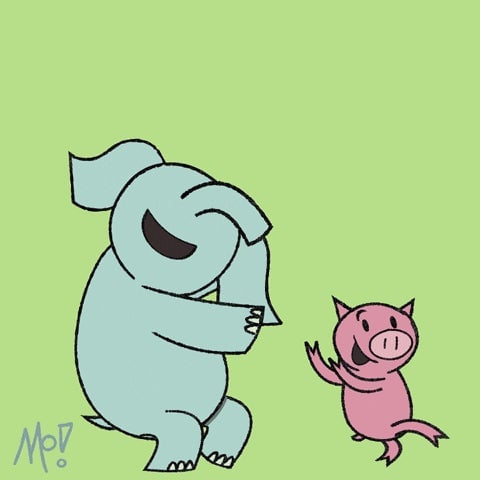Happiness: What’s the secret?
Are you happy right now?

Are you happy right now?
Suggested Reading
Maybe you’ve just settled down to read your favorite weekly email, the steam from your coffee curling ceiling-ward through a beam of sunshine. Maybe you’re scanning yet another newsletter while stressful deadlines scroll like a ticker though the back of your mind. If you’re reading this at all, on a laptop or phone, you’re probably one of the most affluent people in the world—a fact that’s very unlikely to fill you with instant joy.
Related Content
While we mostly know what happiness feels like, when we talk about it, what are we actually discussing? A transient emotion, a fundamental state, an end goal—or something else? And should we even be fixating on personal happiness at all, when societal happiness—or human development, social progress, wellbeing—is surely a more important goal?
Clap along, if you feel like a room without a roof.
By the digits
$105,000: The amount of money you need to earn, beyond which wealth doesn’t increase your happiness, according to a 2018 study
$127,000: How much you’d need to earn in 2023 to achieve the same level of happiness, because inflation
62.3%: US workers who said they were satisfied with their jobs in 2023, a 36-year high
6: Number of years Finland has come out as the happiest country in the world, in the 10 years since the World Happiness Report began publishing
47.2: Age at which you’re likely to be unhappiest, according to a 2020 study
Around 50: Age at which happiness begins to rebound, describing a “U-shape” to approach or exceed your earlier life’s joy, according to the same study
Origin story
Measuring happiness
In many parts of the world, we’re more concerned with happiness than ever before. Thinking about exactly how to live our “best lives,” and how we feel at any given moment, is by definition something of a luxury. For much of human history, and in many places today, people haven’t had the time to reflect on how they feel, caught up as they are in the work of making sure they eat enough, avoid danger, keep warm, and don’t get sick.
New studies constantly emerge trying to pinpoint who is happiest—what age, what gender, what work structure, what nationality—and psychology literature also often suggests that there is much about the modern condition that makes us less happy than our predecessors, because of phenomena like burnout, the FOMO created by media, collapse of community, and even climate change. Conclusions are manifold, from those who say we need psychological richness to those who contend that, actually, earthly riches are just fine.
On a population scale, social scientists seeking to understand happiness have begun increasingly to point out that while money is important for happiness, it’s not sufficient. Education, opportunity, and less tangible concepts like benevolence—how much we’re willing to help one another, and feel we would be helped if in need—and the absence of corruption at all levels of society, are all crucial to ensuring that people generally flourish.
Quotable
“Happiness is the settling of the soul into its most appropriate spot.”
—Aristotle in his Nicomachean Ethics
Pop quiz

Comparisons are at the root of many feelings of unhappiness. But how does that influence our choices?
A. Most people would rather live in a 3,000-square-foot house, in a neighborhood of 2,000-square-foot houses.
B. Most people would rather live in a 4,000-square-foot house, in a neighborhood of 6,000-square-foot houses.
We guarantee a rush of happiness if you scroll to the bottom of this email and discover you’ve chosen correctly.
Brief history
Circa 2.4 million years BCE: Aak, of the homo habilis species, watches her children play in the sun and feels a sense of wellbeing steal over her. One minute later, she hits her thumb with a rock and is annoyed for the next hour.
Circa 335-322 BCE: Aristotle writes The Nicomachean Ethics, exploring the idea that happiness, as an ultimate goal, is the one thing toward which all humans strive, the one incontrovertible good.
1972: King Jigme Singye Wangchuck of Bhutan first declares, “Gross National Happiness is more important than Gross Domestic Product.”
1990: The UN adopts the Human Development Index, conceived by economists Amartya Sen and Mahbub ul Haq, as a way of measuring how societies are faring on metrics that are not purely economic, but include education and life expectancy as well.
2012: The first World Happiness Report, based on the Gallup World Poll, is published.
2016: Michael Porter, Jeffrey D. Sachs, and others launch the Social Progress Index, aiming to measure wellbeing at a societal level, stripped of economic indicators.
March 2023: Finland is proclaimed the world’s happiest country for the sixth year in a row.
Fun fact!
Though Aristotle is often referred to as the first philosopher to focus on happiness, the word he used, anglicized as eudaimonia, doesn’t mean happiness in the sense we use it today. A better translation is “human flourishing,” and it doesn’t refer to a state that can change moment by moment or even day by day. Rather, explains psychologist Catherine Moore, “eudaimonic happiness is about lives lived and actions taken in pursuit of eudaimonia,” both a description of a process, and a form of end goal.
Take me down (or up?) this 🪜!
“Please imagine a ladder with steps numbered from 0 at the bottom to 10 at the top. Suppose we say that the top of the ladder represents the best possible life for you and the bottom of the ladder represents the worst possible life for you. If the top step is 10 and the bottom step is 0, on which step of the ladder do you feel you personally stand at the present time?”
This question is known as Cantril’s Ladder after the social scientist who invented it. This question is used across all kinds of surveys as a subjective but effectively simple measure of how happy people feel they are.
🎧 Listen to this
In 2015, a Dutch neurologist did some research and determined that these were the happiest 10 songs. Quartz staff from around the world responded with the songs that make them happiest. This is that playlist.
But don’t remove your headphones once you’re done listening. The fifth season of the Quartz Obsession podcast is out in its entirety.
🤖 Binge the whole season, wherever you get your podcasts: Apple Podcasts | Spotify | Google | Stitcher | YouTube
Poll

How happy are you?
- Happy as a clam
- Happy as a 50-year-old earning $127,000
- Happy as a room with a roof
It’ll make us quite happy to hear where you’re at on the ladder.
💬 Let’s talk!
In last week’s poll about failure, 62% of you said without accountability, failing upward is a farce. 20% of you are still haunted by your failed math tests, and 18% of you love sweet, sweet redemption.
Today’s email was written by Cassie Werber (very happy, 50% of the time), and edited and produced by Annaliese Griffin (looking forward to the other side of the happiness U-bend).
The correct answer to the quiz is A. In a famous experiment, more people would prefer to live in a significantly smaller house, if that house was bigger than the average for the area, than in an even bigger house in a neighborhood of even larger pads.